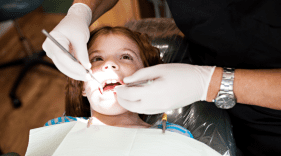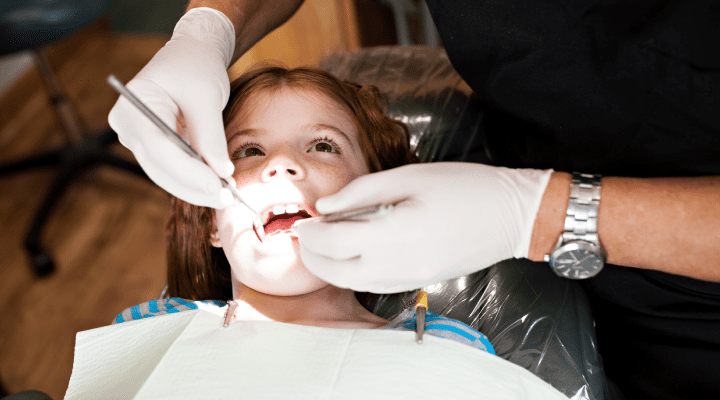Dental Hygienists vs. Dental Assistants

Both dental assistants and dental hygienists are important parts of a dental office. Dental assistants often work as an aide to the dentist, while dental hygienists often work one-on-one with patients. Learn more about these two professions.
Dental Hygienists vs. Dental Assistants
Dental Hygienist
A dental hygienist is often the person you spend the most time with during your regular checkup. He or she works with the dentist to make patient plans, but also performs job duties independently.
State law varies, but hygienists are typically responsible for:
- Removing plaque and tartar from teeth
- Polishing teeth
- Applying sealants and fluoride treatments
- Oral cancer screenings
- Taking dental X-rays
- Educating patients on proper dental hygiene techniques
- Making impressions of teeth
Dental hygienists can receive their education from universities, community colleges and/or technical colleges. After completing their degree, hygienists take a licensure exam, which enables them to work in a dental office. Though dental hygiene programs vary by school, the Commission on Dental Accreditation (CODA) is responsible for accrediting all of them.
Dental Assistant
A dental assistant is a hands-on member of the dental office, working very closely with the dentist.
Some duties of a dental assistant include:
- Assisting the dentist during procedures
- Taking X-rays
- Preparing and sterilizing equipment
- Providing oral care instructions after procedures
- Teaching patients proper dental hygiene techniques
- Communicating with patients and office suppliers
Dental assistants can receive their education from community colleges, vocational schools, technical institutes, universities or dental schools. CODA accredits dental assisting programs too. Most dental assistants become nationally certified through the Dental Assisting National Board’s (DANB) Certified Dental Assistant exam.
The biggest link between dental hygienists and dental assistants? They’re both essential to a successful dental practice.
Related stories
-
One Rule No One Should Break
Sending little ones to bed without brushing may not seem like a big deal, but cavities are … Read More
-
Common Questions Around Pediatric Dental Procedures
Why might your family dentist refer you to a pediatric dentist, and what are the most common … Read More
-
New Survey Finds 4 out of 10 Pregnant Women Skipping Crucial Health Step
If expecting women in Wisconsin are anything like their national counterparts, roughly 42.5 percent of them are … Read More
Sign Up Now
Most Liked
- 1 Do Expiration Dates on Dental Products Matter? 305 Likes
- 2 Is Activated Charcoal Safe for your Smile? 167 Likes
- 3 Crazy and Cool Fish Teeth Facts 92 Likes
- 4 What Are Tonsil Stones? 81 Likes
- 5 Delta Dental Protects Your Eyes with DeltaVision® Coverage 74 Likes
- 6 The In-between Tooth: Guide to Bicuspids 53 Likes
- 7 Recipe: Quick Pumpkin Pudding 49 Likes
- 8 Bad Taste After Brushing? Common Explanations 44 Likes
- 9 People with Dental Benefits are Healthier 40 Likes
- 10 Own Your Oral Health: Subscribe now for tips to ensure a bright smile 39 Likes




